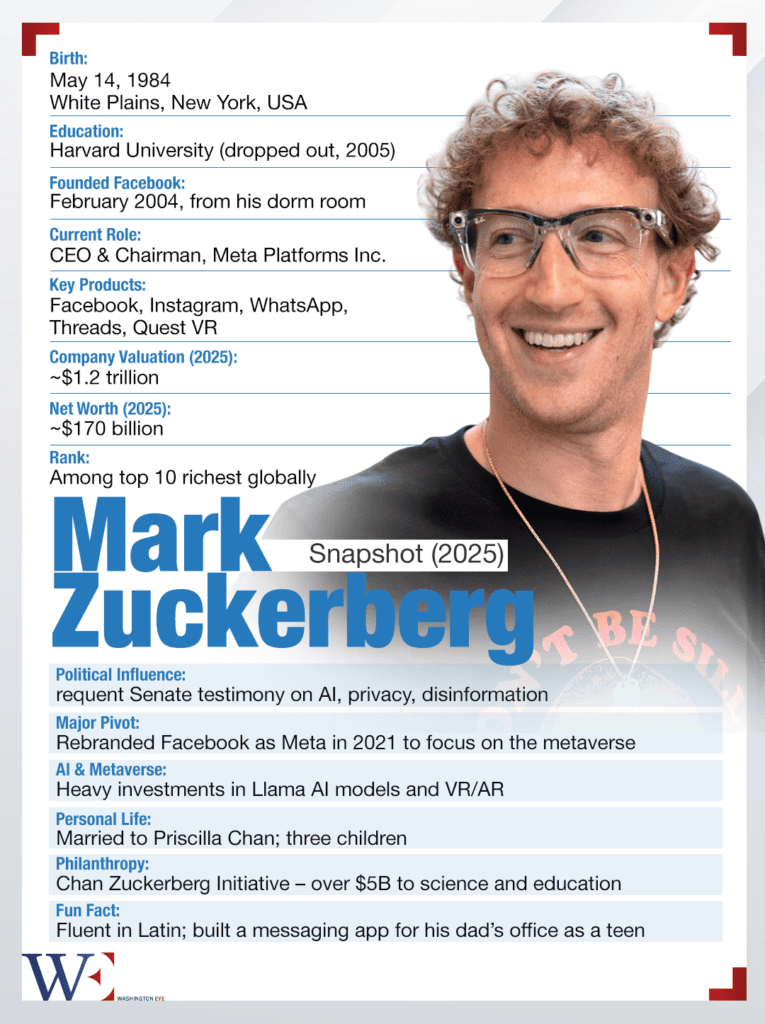Meta Platforms Inc. — the parent company of Facebook, Instagram, and WhatsApp — is at the center of a historic antitrust trial initiated by the U.S. Federal Trade Commission (FTC). The trial, which could force Meta to divest Instagram and WhatsApp, is not just a regulatory proceeding — it’s a test of how antitrust laws apply to 21st-century tech giants.
The Heart of the Case: FTC’s “Monopoly Maintenance” Claim
At the core of the FTC’s case is the argument that Meta has systematically quashed competition by acquiring potential rivals before they could threaten its dominance. Specifically, the FTC alleges that Meta’s acquisitions of Instagram in 2012 for $1 billion and WhatsApp in 2014 for $19 billion were not merely strategic business moves, but deliberate efforts to “buy or bury” rising competition.
In internal emails presented as evidence, CEO Mark Zuckerberg allegedly wrote that “it is better to buy than compete,” a sentiment the FTC is using to paint a picture of anti-competitive behavior. The agency’s suit, originally filed in 2020 and refiled in 2021 after an initial dismissal, argues that Meta maintained a monopoly in the personal social networking market through these purchases — not by improving its products, but by buying threats off the table.
Meta’s Defense: Evolving Markets, Competitive Realities
Meta, unsurprisingly, refutes these allegations. The company argues that the social media market has evolved dramatically since the acquisitions. It points to the rise of TikTok, Snapchat, YouTube Shorts, and BeReal as evidence of a thriving, competitive ecosystem where innovation continues to flourish despite its market share.
Meta’s legal team also claims that the FTC had previously cleared these acquisitions, raising the issue of regulatory reversal and its broader implications for corporate dealmaking. In a statement, Meta emphasized that breaking up the company would harm consumers, particularly given the integrated features and efficiencies users have come to rely on, according to The Independent.
A Precedent-Setting Legal Battle
What makes this trial especially significant is its potential to rewrite the rules of engagement for Big Tech. If the court sides with the FTC, it could lead to a forced breakup — the first of its kind in the tech sector since the Microsoft antitrust case of the late 1990s. Such an outcome would signal a reinvigorated approach to antitrust enforcement, particularly in digital markets where traditional indicators of monopoly power — like pricing — are harder to apply.
Legal scholars and regulatory observers see the Meta trial as a bellwether. As explained by digital policy researchers at the Geneva Internet Platform, the case explores whether “consolidation of platforms is stifling innovation and harming consumers”, or whether it’s simply the natural outcome of aggressive but legal competition.
Behind the Curtain: Political Undercurrents and Institutional Power
Adding to the complexity is the political subtext surrounding the trial. Reports have suggested that Zuckerberg and Meta have engaged in quiet lobbying efforts to soften regulatory scrutiny — including meetings with influential political figures across the spectrum. Furthermore, tensions between the FTC and tech giants have escalated under the leadership of Lina Khan, a vocal advocate for aggressive antitrust action.
Khan’s tenure has brought a new wave of scrutiny to Big Tech, but it has also sparked criticism that the FTC is overstepping or acting retroactively. Critics argue that the agency risks politicizing antitrust enforcement and undermining business confidence in regulatory consistency.
Implications Beyond Meta: A New Era of Antitrust Enforcement?
The outcome of the Meta trial will reverberate far beyond Zuckerberg’s empire. It comes amid broader efforts by U.S. regulators and lawmakers to curb the influence of tech conglomerates — including ongoing lawsuits against Amazon and Google.
More than a question of Meta’s structure, this trial is fundamentally about whether regulators can effectively police anti-competitive conduct in the digital age. Should the FTC succeed, it will embolden similar cases and may even prompt new legislation aimed at adapting antitrust law to fit modern technological realities.
A Final Note: A Tipping Point in Tech Regulation
The FTC v. Meta trial is not just a legal battle — it’s a symbolic clash between Silicon Valley’s growth-at-all-costs ethos and a resurgent regulatory state seeking to reclaim control over digital markets. If Instagram and WhatsApp are pried away from Meta, it will mark one of the most dramatic corporate restructurings— and signal a decisive shift in how America polices digital monopolies.
The decision will either reinforce the status quo of laissez-faire tech capitalism or crack the foundations of digital consolidation that have defined the last decade. As courts deliberate, the world watches, and the future of platform power hangs in the balance.














